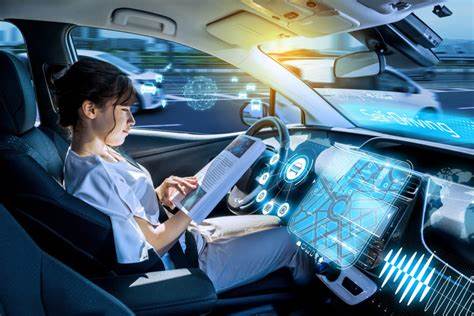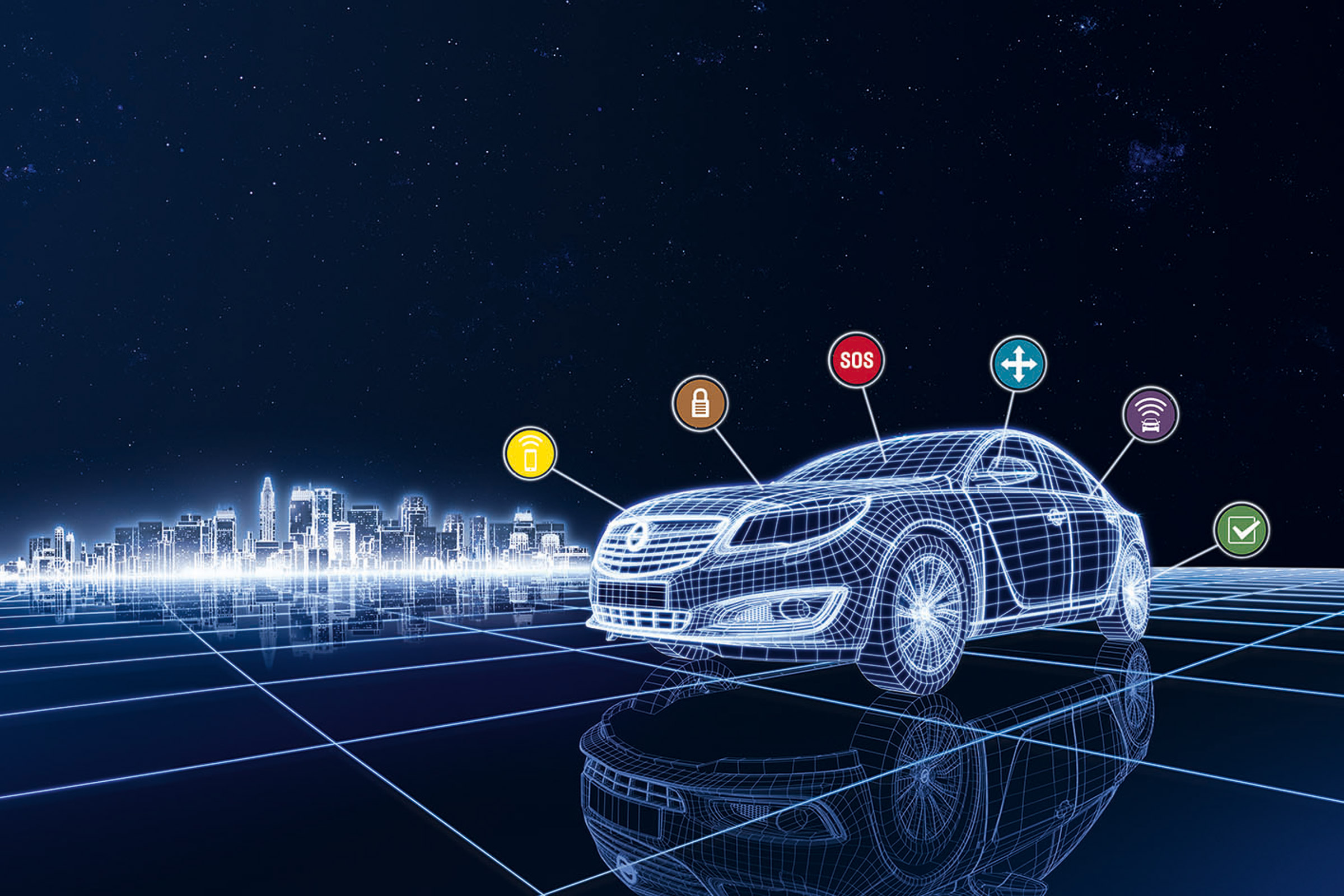The automotive industry is undergoing a seismic shift, driven by the convergence of electric cars and autonomous technology. As electric vehicles (EVs) become more mainstream, the integration of autonomous driving features is set to transform how we think about transportation. In this article, we will explore how electric cars, paired with cutting-edge autonomous technology, are revolutionizing the automotive industry. From sustainability to convenience, these advancements are not just reshaping the future of driving; they’re also changing the way we view mobility.
The Rise of Electric Cars

Electric cars have surged in popularity in recent years, driven by environmental concerns, government regulations, and a growing desire for sustainable alternatives. Traditional gasoline-powered vehicles are a significant source of pollution, and as awareness about climate change increases, more consumers and businesses are turning to electric cars. The appeal of EVs goes beyond sustainability; they offer reduced maintenance costs, lower fuel expenses, and a smooth, quiet driving experience.
Key Benefits of Electric Vehicles
- Sustainability: One of the most compelling reasons to switch to an electric vehicle is its environmental impact. EVs produce zero tailpipe emissions, reducing air pollution and greenhouse gas emissions. As the world shifts toward renewable energy sources, EVs are expected to further lower their carbon footprint, making them a vital part of the fight against climate change.
- Cost Efficiency: While electric vehicles typically have a higher upfront cost than traditional cars, they offer lower operating expenses. Charging an EV is generally cheaper than refueling a gasoline-powered car, and maintenance costs are lower because electric motors have fewer moving parts.
- Innovative Technology: Many electric cars are equipped with advanced technology, such as over-the-air software updates, autopilot features, and state-of-the-art infotainment systems. These features make EVs not only efficient but also fun to drive.
Autonomous Technology: The Future of Driving

Autonomous vehicles, or self-driving cars, have been in development for years, and the integration of AI, machine learning, and advanced sensors is making the dream of fully autonomous driving a reality. Autonomous technology promises to reduce accidents, improve road safety, and enhance the overall driving experience.
How Autonomous Technology Works
Autonomous vehicles use a combination of technologies to navigate roads without human intervention. These include:
- Lidar and Radar Sensors: These sensors create a 3D map of the car’s surroundings, detecting obstacles, pedestrians, and other vehicles. This allows the car to make informed decisions and react in real-time.
- Cameras: Cameras provide additional visual input, allowing the vehicle to recognize traffic signals, lane markings, and other important features of the road.
- AI and Machine Learning: The data collected by sensors and cameras is processed by AI algorithms that enable the car to make decisions, such as adjusting speed, changing lanes, or stopping when necessary.
Benefits of Autonomous Vehicles
- Improved Road Safety: Human error is the leading cause of traffic accidents. Autonomous vehicles have the potential to significantly reduce accidents caused by distraction, fatigue, and impaired driving.
- Efficiency and Convenience: Self-driving cars can optimize routes, avoid traffic, and make driving more efficient. Autonomous cars can also free up time for passengers, allowing them to focus on other tasks while traveling.
- Reduced Traffic Congestion: Autonomous vehicles can communicate with each other, allowing for smoother traffic flow. This could reduce congestion and make roads safer.
The Synergy Between Electric Cars and Autonomous Technology
While electric cars and autonomous technology are both significant advancements on their own, their combination creates an entirely new paradigm in the automotive industry. Electric cars provide the perfect platform for autonomous technology because their electric powertrains are inherently quieter, smoother, and more efficient, creating an ideal environment for self-driving systems to operate effectively.
Advantages of Combining Electric Cars with Autonomous Technology
- Sustainability Meets Innovation: The combination of electric vehicles and autonomous driving features offers the potential for a sustainable, efficient, and innovative transportation system. Self-driving electric cars are expected to significantly reduce emissions and improve energy efficiency, contributing to a greener future.
- Energy Efficiency: Electric vehicles are more energy-efficient than gasoline-powered cars, and when combined with autonomous technology, they can further optimize energy use. For example, autonomous vehicles can adjust driving patterns, like braking and accelerating, to conserve energy and extend the vehicle’s range.
- Enhanced Safety: Both electric cars and autonomous vehicles are equipped with advanced safety features, such as collision avoidance, emergency braking, and lane-keeping assist. The integration of these technologies further enhances the safety of both drivers and passengers.
Challenges to Overcome
Despite the many benefits, there are still several challenges to overcome before electric cars and autonomous technology can fully integrate into mainstream society. Some of the key challenges include:
- Infrastructure Development: The widespread adoption of electric vehicles requires the development of a comprehensive charging infrastructure. Similarly, autonomous vehicles rely on detailed mapping and infrastructure that can accommodate self-driving technology.
- Regulatory and Legal Issues: Governments must create clear regulations and guidelines for autonomous vehicles, including safety standards, liability in the case of accidents, and privacy concerns. These legal challenges can delay the widespread adoption of autonomous vehicles.
- Public Perception: While many consumers are excited about the potential of electric and autonomous vehicles, others remain skeptical. Concerns about safety, the reliability of autonomous technology, and the higher upfront costs of electric cars may hinder adoption.
Leading Companies in Electric and Autonomous Vehicle Development
Several companies are leading the charge in electric vehicle and autonomous technology development. Here are some of the top players in this revolution:

- Tesla: Tesla has been at the forefront of both electric car production and autonomous technology. Its electric vehicles, including the Model S, Model 3, and Model X, are known for their impressive range, cutting-edge technology, and Autopilot self-driving features.
- Waymo: Waymo, a subsidiary of Alphabet (Google’s parent company), is one of the leaders in autonomous vehicle technology. Waymo’s self-driving cars have been tested extensively and are considered some of the safest on the road.
- Rivian: Rivian, an electric vehicle startup, is making waves in the automotive industry with its all-electric R1T pickup truck and R1S SUV. Rivian is focused on building durable, high-performance electric vehicles with off-road capabilities.
- Lucid Motors: Lucid Motors is a luxury electric vehicle manufacturer known for its high-performance Lucid Air sedan. The company focuses on producing premium, energy-efficient EVs with advanced autonomous features.
- Ford: Ford has made significant strides in electric vehicle development with its all-electric Mustang Mach-E SUV and the upcoming F-150 Lightning electric truck. Ford is also investing heavily in autonomous driving technology.
The Road Ahead: What the Future Holds
The future of the automotive industry is electric and autonomous. As electric vehicles become more affordable and charging infrastructure expands, the adoption of EVs will continue to grow. Meanwhile, autonomous technology will revolutionize the way we think about driving and transportation. In the coming years, the synergy between electric cars and autonomous driving features will likely lead to even more advanced, sustainable, and efficient vehicles. The automotive revolution is well underway, and it’s shaping up to be a game-changer for both consumers and the planet.
Conclusion
Electric cars and autonomous technology are ushering in a new era of transportation. Together, they promise a future of safer, more efficient, and environmentally friendly vehicles. As automakers continue to innovate, consumers can look forward to a new generation of vehicles that combine sustainability with cutting-edge technology. Whether you’re excited about the environmental benefits of EVs or the convenience and safety of autonomous vehicles, one thing is clear: the future of the automotive industry is electric and autonomous.

Leave a Reply